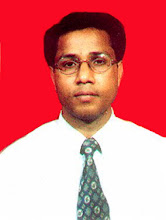Hi
Please find the Module details of the workshop...
The training in soft skills has two parts. One part involves developing attitudes and attributes, and the other part involves fine-tuning communication skills to express attitudes, ideas, and thoughts well. Crucial to successful work is the perfect integration of ideas and attitudes with appropriate communication skills in oral, written, and non-verbal areas. Attitudes and skills are integral to soft skills. Each one influences and complements the other.
Grooming of the students begins with a preliminary test in the English language to determine their level of competence in the use of English for effective communication both oral and written. The idea is to ensure that students are oriented to understand that a manager's key job is to be able to express himself/herself clearly, correctly, and concisely. Thus Personality Development through Soft Skills Training is conducted in three modules:
Module I : Business Communication
Module II : Behavioral Skills
Module III : Training in Group Discussion and Personal Interview
Soft Skills Module I: Business Communication
Module I
Students get a chance to learn the nuances of English for business purposes. Business letter writing, memos, reports and e-mails form the core of the training. Rirgorous training is also given in oral communication through different modules like presentation skills, face-to-face dialogues, telephone etiquette, business and social etiquette, and conversational skills.
This module covers the following areas:
Business Communication: Communications skills, current English usage, debates, language games, situational dialogues, précis writing, essay writing, presentations.
Presentation Skills: Preparing for effective presentations, presentation for small groups and large groups, marketing and business presentations.
Business Correspondence: Principles of clear writing, often misused words, applications and requests, positive and negative responses to requests, routine messages, memos, report writing, organizing meetings, preparation of agenda and minutes, business etiquette, telephone etiquette, e-mail etiquette.
Benefits from the Training
The ability to communicate clearly and concisely is an advantage to a promising manager. The students will soon realize that fluency and command over speaking and writing gives them an edge while interacting with people at all levels.
Module II
An array of skills related to personal growth for efficient functioning constitutes the training. Students are made to realize their strengths and weaknesses so that they are able to grasp the true essence of development. They are made to take part in role plays, games, and puzzles that demonstrate the attributes needed for assertiveness, interpersonal relationships, negotiations, time and goal management, leadership skills, and conflict management.
This module covers the following areas:
Psychological Tests: Aptitude and personality assessment, suggestions for improvement.
Team Skills: Team building and leadership, evolution of groups into teams, group dynamics, emergence of leadership, intra-group dynamics, inter-group dynamics, conflict management, inter dependency, assessment of team-based projects.
Time Management: Pareto's Principle, Parkinson's Laws, Murphy's Laws, Law of Clutter, prioritization, goal setting, effective time management.
Interpersonal Skills: Negotiations, listening skills, social skills, assertive skills, cross-cultural communications.
Leadership Skills: Concepts of leadership, leadership styles, insights from great leaders.
Benefits from the Training
Self-awareness programs enhance the students' personalities. They get to realize that punctuality, goal management, collaborative team skills, and listening skills, are important facets of a well-rounded personality. These soft skills are enormously valued in business organizations. As employment conditions become tougher, potential recruiters look for personal attributes like attitude and values.
Module III
Before the students go through real job interviews, they are made to go through a series of practice sessions on GD and PI. If possible these sessions are videotaped and later played back so that the students can see for themselves if their verbal and non-verbal messages are in synchrony and make for meaningful communication. For the practice sessions in personal interviews, industry experts' questions are asked.Feedback is given to the students later for a realistic understanding of industry expectations.
This module covers the following areas :
Career Visioning and Planning
Selection Process: Overview of selection process, practice of psychological tests, effective resume writing, dealing with placement consultants and headhunters, references – how to get effective references from past and current employers.
Group Discussions: Concepts and Practice.
Interview Techniques: Effective interview techniques, mock interviews, stress interviews, review and feedback.
Benefits from the Training
All management students aspire to obtain fulfilling and rewarding campus placements. How the students fare in the campus placement interviews depends on how well they are able to internalize the personality development techniques. If they internalize the techniques thoroughly, they have a good chance of getting great placements.
The teaching methods in the soft skills training include lectures, projects, role plays, quizzes, and various other participatory sessions. The emphasis will be on learning by doing.
Since the method of training is experiential and highly interactive, the students imbibe the skills and attributes in a gradual and subtle way over the duration of the program. The students will not only learn the skills and attributes but also internalize them over a period of time.
Internalization ensures that the skills and attributes become part of the students' nature. Subtle changes are bound to occur in their behavior and outlook, and these will make them more self-assured and confident. Moreover, the behavior changes will be gradual and natural and will not appear artificial or put on. Thus, the changes in them will be genuine and positive.
With thanks and regards!
Rakesh
09818493659
(English Coach & Independent Corporate Trainer)
Empowering Minds & Igniting Ideas…
PS-As I am looking forward to a long term association, the workshop fee being quoted here is just an indicative of my sense of its being at least economically viable .Hence Rs. 2000.00 per hour is acceptable to me if its in the town (Delhi NCR), and in case of outstation workshop accommodation facility and travel expenses to be borne by the company. (A day has six hours of training workshop in two shifts of three hours each besides an hour lunch break in between).Each module needs at least 5 days workshop.
Subscribe to:
Post Comments (Atom)

No comments:
Post a Comment